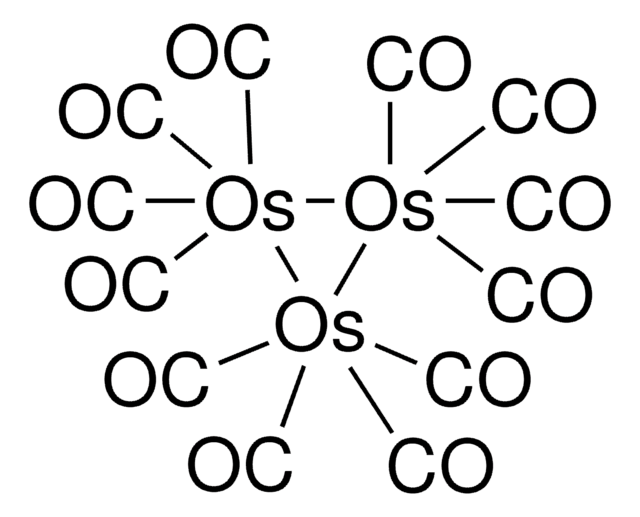398594
Osmium(III) chloride
99.9% trace metals basis
Synonym(s):
Osmium chloride, Osmium trichloride
About This Item
Recommended Products
Quality Level
Assay
99.9% trace metals basis
form
powder
reaction suitability
reagent type: catalyst
core: osmium
impurities
≤1500.0 ppm Trace Metal Analysis
SMILES string
Cl[Os](Cl)Cl
InChI
1S/3ClH.Os/h3*1H;/q;;;+3/p-3
InChI key
UAIHPMFLFVHDIN-UHFFFAOYSA-K
Looking for similar products? Visit Product Comparison Guide
Signal Word
Danger
Hazard Statements
Precautionary Statements
Hazard Classifications
Acute Tox. 3 Oral - Eye Dam. 1 - Skin Corr. 1B
Storage Class Code
6.1A - Combustible acute toxic Cat. 1 and 2 / very toxic hazardous materials
WGK
WGK 3
Flash Point(F)
Not applicable
Flash Point(C)
Not applicable
Personal Protective Equipment
Certificates of Analysis (COA)
Search for Certificates of Analysis (COA) by entering the products Lot/Batch Number. Lot and Batch Numbers can be found on a product’s label following the words ‘Lot’ or ‘Batch’.
Already Own This Product?
Find documentation for the products that you have recently purchased in the Document Library.
Customers Also Viewed
Our team of scientists has experience in all areas of research including Life Science, Material Science, Chemical Synthesis, Chromatography, Analytical and many others.
Contact Technical Service














